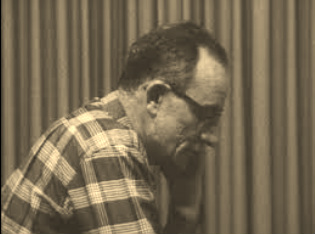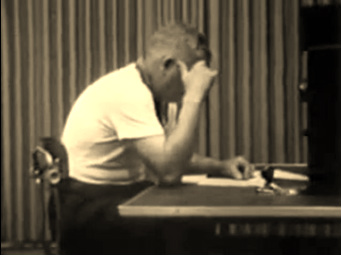The Ethical Dilemma

When Milgram began his experiments "There were no formal ethical guidelines for the protection of the human subjects. Researchers tended to use their own judgment about whether their research posed an ethical problem...ethical questions...took a back seat to scientific value" (Blass 71).
The first ethical dilemma with Milgram's experiment is deception. The experimenter deceived the participants, who were made to believe that they were truly inflicting pain on the learners and were purposely put in a position of high stress. Some teachers even believed they had badly hurt, or even killed the learner, causing a lot of distress (Nairne 435).
Milgram also lied about the purpose of the experiment. While it was truly to measure obedience, he told his participants that he was studying the effects of punishment on learning. Although the participants were debriefed after the experiment was over, many critics believe that it wasn't enough because it didn't prevent the subsequent psychological damage that could have affected the participants (Nairne 435).
Because of the horrific implications of the study, many critics thought that the volunteers may have figured out the true purpose of the experiment and were simply going along with the experimenter. Nowadays, because the study has been replicated many times, most psychologists respect Milgram's findings and want to pursue the topic even more, finding his conclusions to be valid (Nairne 435).
The first ethical dilemma with Milgram's experiment is deception. The experimenter deceived the participants, who were made to believe that they were truly inflicting pain on the learners and were purposely put in a position of high stress. Some teachers even believed they had badly hurt, or even killed the learner, causing a lot of distress (Nairne 435).
Milgram also lied about the purpose of the experiment. While it was truly to measure obedience, he told his participants that he was studying the effects of punishment on learning. Although the participants were debriefed after the experiment was over, many critics believe that it wasn't enough because it didn't prevent the subsequent psychological damage that could have affected the participants (Nairne 435).
Because of the horrific implications of the study, many critics thought that the volunteers may have figured out the true purpose of the experiment and were simply going along with the experimenter. Nowadays, because the study has been replicated many times, most psychologists respect Milgram's findings and want to pursue the topic even more, finding his conclusions to be valid (Nairne 435).
Not Everyone Ended Up Alright...

Milgram claimed that "relatively few subjects experienced greater tension than a nail-biting patron at a good Hitchcock thriller" (Blass 115).
Yet, at least two participants disagree...
One participant, William Menold, who had just been discharged from a Regimental Combat Team in the U.S. Army and participated in 1961 said, "It was hell in there" (Blass 115), describing how it felt to be in the laboratory during the experiment. He said, "[I was] hysterically laughing, but it was not funny laughter...It was so bizarre. And I mean, I completely lost it, my reasoning power". He said that he couldn't believe "that somebody could get [him] to do that stuff" (Blass 116).
Blass says that another subject, Herbert Winer, said that his experience of the experiment was "very difficult to describe...the way [his] feelings changed [about it], and the conflict and tension that arose" (116), and that his "own heart condition went into an extremely tense and conflicted state" (116). The most revealing comment that shows the damage Milgram's experiments had came from Winer when he was debriefed at the end of the experiment. He said he "was angry at having been deceived"(116). He said he "resented the whole situation" [and] "was a little embarrassed at not having stopped earlier" (116).
Yet, at least two participants disagree...
One participant, William Menold, who had just been discharged from a Regimental Combat Team in the U.S. Army and participated in 1961 said, "It was hell in there" (Blass 115), describing how it felt to be in the laboratory during the experiment. He said, "[I was] hysterically laughing, but it was not funny laughter...It was so bizarre. And I mean, I completely lost it, my reasoning power". He said that he couldn't believe "that somebody could get [him] to do that stuff" (Blass 116).
Blass says that another subject, Herbert Winer, said that his experience of the experiment was "very difficult to describe...the way [his] feelings changed [about it], and the conflict and tension that arose" (116), and that his "own heart condition went into an extremely tense and conflicted state" (116). The most revealing comment that shows the damage Milgram's experiments had came from Winer when he was debriefed at the end of the experiment. He said he "was angry at having been deceived"(116). He said he "resented the whole situation" [and] "was a little embarrassed at not having stopped earlier" (116).
